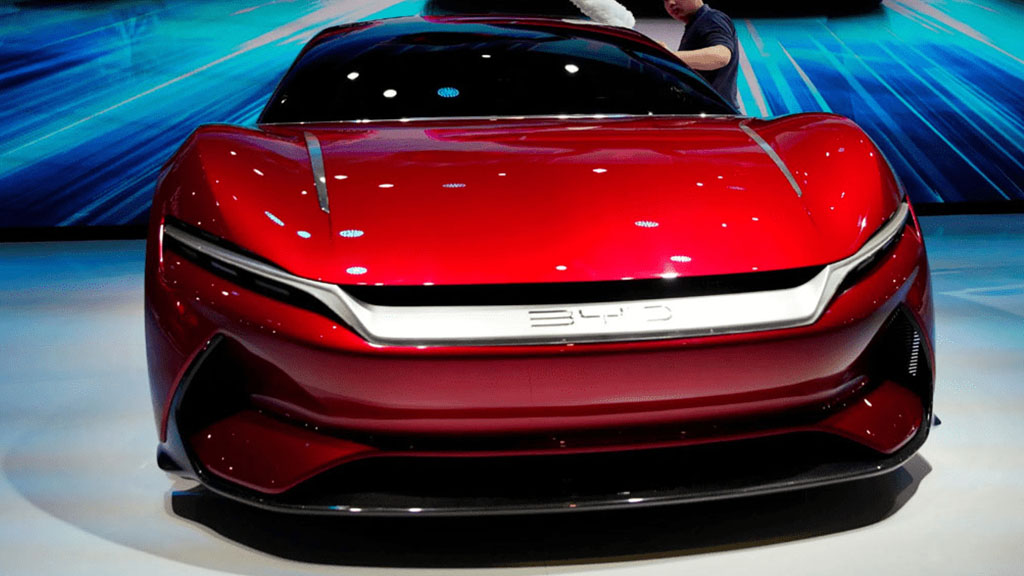- Reuters
- 4 Hours ago

BYD predicts 50 per cent of cars sold in Pakistan will be electrified by 2030
-

- Web Desk
- Sep 06, 2024

ISLAMABAD: BYD Pakistan, a joint venture between China’s BYD and Pakistan’s Mega Motors, has stated that by 2030, up to 50 per cent of all vehicles purchased in Pakistan could be electrified in line with global targets. This marks a significant shift in Pakistan’s auto market towards greener technology.
Last month, Warren Buffett-backed Chinese electric vehicle giant BYD officially entered Pakistan, a country with a population of 250 million. The company has already outlined plans to establish an assembly plant by early 2026, with vehicle sales set to begin later this year following the August launch of three models.
“I expect the conversion to new energy vehicles (NEV) to reach up to 50 per cent,” Kamran Kamal, BYD Pakistan’s spokesperson, told Reuters in an interview on Thursday.
Kamal, who is also CEO of Hub Power, the parent company of Mega Motors, described the target as ambitious, especially in a market traditionally dominated by Japanese automakers such as Toyota, Honda, and Suzuki. Pakistan’s vehicle sales hit a multi-year low in the fiscal year ending June 30, 2024.
In recent years, competition in Pakistan’s automotive market has intensified, with South Korea’s KIA and Chinese brands such as Changan and MG entering the scene, all offering hybrid models. However, BYD Pakistan is the first major company focused solely on new energy vehicles. Notably, hybrid electric vehicle sales in Pakistan have more than doubled in the past year.
While reaching 30 per cent NEV adoption by 2030 seems achievable, hitting the 50 per cent mark could be more challenging due to infrastructural limitations, according to Muhammad Abrar Polani, an auto sector analyst at Arif Habib Limited. Kamal acknowledged these challenges but highlighted government plans to incentivise the development of charging infrastructure.
Local media reported in August that the Ministry of Power had drafted standards for EV charging stations, and the government is considering offering affordable electricity to encourage their construction.
Kamal also shared that BYD Pakistan is collaborating with two oil marketing companies to create a network of charging stations. The company aims to establish 20 to 30 stations during the initial phases of its rollout.
Initially, BYD Pakistan will import fully assembled vehicles, which attract higher import duties compared to locally assembled units. “Our priority is to have locally assembled cars on the roads as soon as possible,” Kamal noted, pointing out the difficulties of selling fully assembled imports under Pakistan’s current duty structure.
Regarding the upcoming assembly plant, Kamal revealed that decisions on its size are still being made, with further details about the investment and BYD’s partnership with power utility HUBCO to be announced at a later date.
Read next: What’s new in Bluetooth 6.0?





